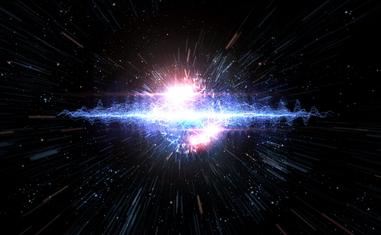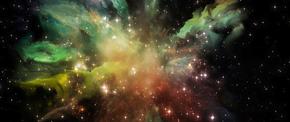The views expressed in our content reflect individual perspectives and do not represent the authoritative views of the Baha'i Faith.
When you think of the terms “create” or “creation,” what comes to mind? Do they infer that a Creator exists? Let’s explore that concept by focusing on what defines a “being.”
The term “create” properly refers to the generative sources of order in our universe.
RELATED: The Deep Spiritual Meaning of the Word “Create”
In this case, if we refer to the universe as “created” or say the universe is a product of “nature,” there is little difference between these definitions. Yet what remains, perhaps an unsolvable mystery, is if there exists a quality of “being” behind the creative actions of nature. If we are to ascribe “being” to anything, then one must first ask, what are the minimal requirements of being?
Understanding Our Own Being
In the 19th century Baha’u’llah, the prophet and founder of the Baha’i Faith, reflected on this question and the human experience of “being,” in a commentary on the traditional saying of Muhammad: “He who knoweth his self hath known his Lord.” Baha’u’llah wrote:
Consider the rational faculty with which God hath endowed the essence of man. Examine thine own self, and behold how thy motion and stillness, thy will and purpose, thy sight and hearing, thy sense of smell and power of speech, and whatever else is related to, or transcendeth, thy physical senses or spiritual perceptions, all proceed from, and owe their existence to, this same faculty … It would be wholly untrue to maintain that this faculty is the same as the power of vision, inasmuch as the power of vision is derived from it and acteth in dependence upon it. It would, likewise, be idle to contend that this faculty can be identified with the sense of hearing, as the sense of hearing receiveth from the rational faculty the requisite energy for performing its functions.
An initial reading of this tablet appears to disassociate “being” from physical sense perception. Yet I would hesitate to say that Baha’u’llah denies the possibility that “being” might be connected to perception in the abstract or spiritual sense. In fact, the Bab, who was the forerunner of Baha’u’llah, described the human soul as a product of divine self-perception, as explained in this provisional translation by Baha’i scholar Nader Saiedi in his book Gate of the Heart:
Therefore it is necessary, according to true wisdom, that the Preexistent God describe Himself to His creatures, that they may recognize their Creator and that, out of the grace of the Pre-existent, the contingent beings may attain their supreme End. This divine self-description is itself a created thing. It is unlike any other description, the sign of ’He is the One Who hath no equal,’ and the truth of the servant, his true being. Whoso hath recognized it hath recognized his Lord …. This description is denoted as the ’soul’ or ’self’, and he who hath known himself hath known his Lord. At other times, it is expressed as the heart, which is a description of the Divinity, by the Divinity, and is the essence of Servitude.
RELATED: What Is Reality – and Can Our Senses Understand it?
Baha’u’llah further explained in his commentary that fully and completely understanding the human experience of “being” is in fact an unfathomable mystery, linked to the human unknowability of God:
Wert thou to ponder in thine heart, from now until the end that hath no end, and with all the concentrated intelligence and understanding which the greatest minds have attained in the past or will attain in the future, this divinely ordained and subtle Reality, this sign of the revelation of the All-Abiding, All-Glorious God, thou wilt fail to comprehend its mystery or to appraise its virtue. Having recognized thy powerlessness to attain to an adequate understanding of that Reality which abideth within thee, thou wilt readily admit the futility of such efforts as may be attempted by thee, or by any of the created things, to fathom the mystery of the Living God, the Day Star of unfading glory, the Ancient of everlasting days. This confession of helplessness which mature contemplation must eventually impel every mind to make is in itself the acme of human understanding, and marketh the culmination of man’s development.
Here Baha’u’llah makes clear that reflecting on the nature of one’s own being represents an important exercise that can bring us closer to God, and enable a mature understanding of the limits of our human comprehension.
You May Also Like
Comments

















The Quantum Zeno effect, however, is just one of many examples of the non-mysterious fact that an essentially statistical probabilistic concept (wavefunction, which in quantum mechanics is often epistemologically mistaken for an actual physical observation) is by definition not directly observable. Hence, actual physical measurement/observation shows something more definite and different from an abstract mathematical notion.